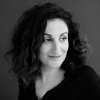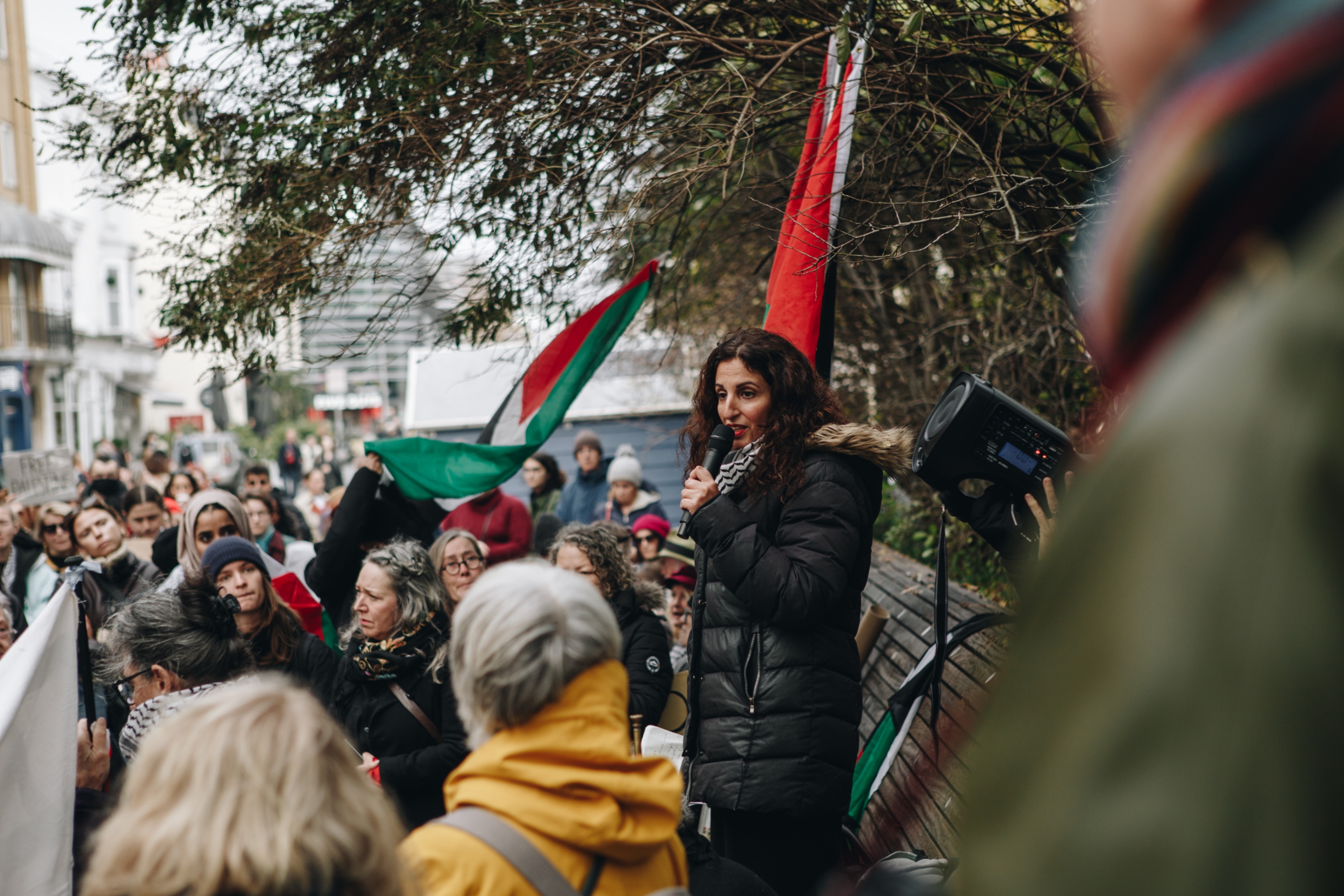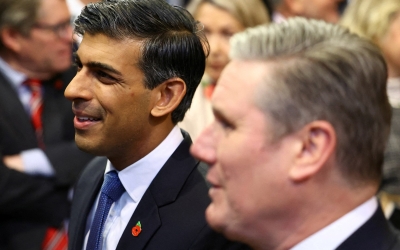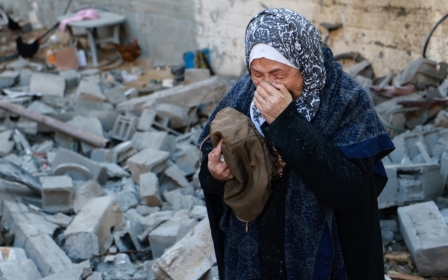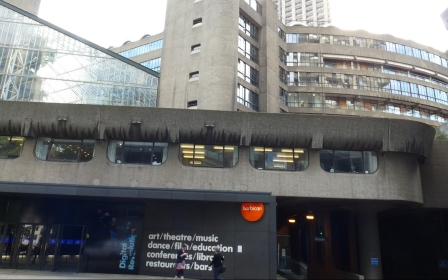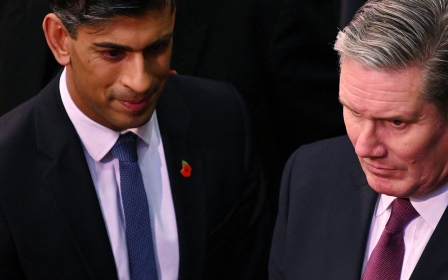Gaza: This is the worst of humanity. This is the ‘never again’ moment in history
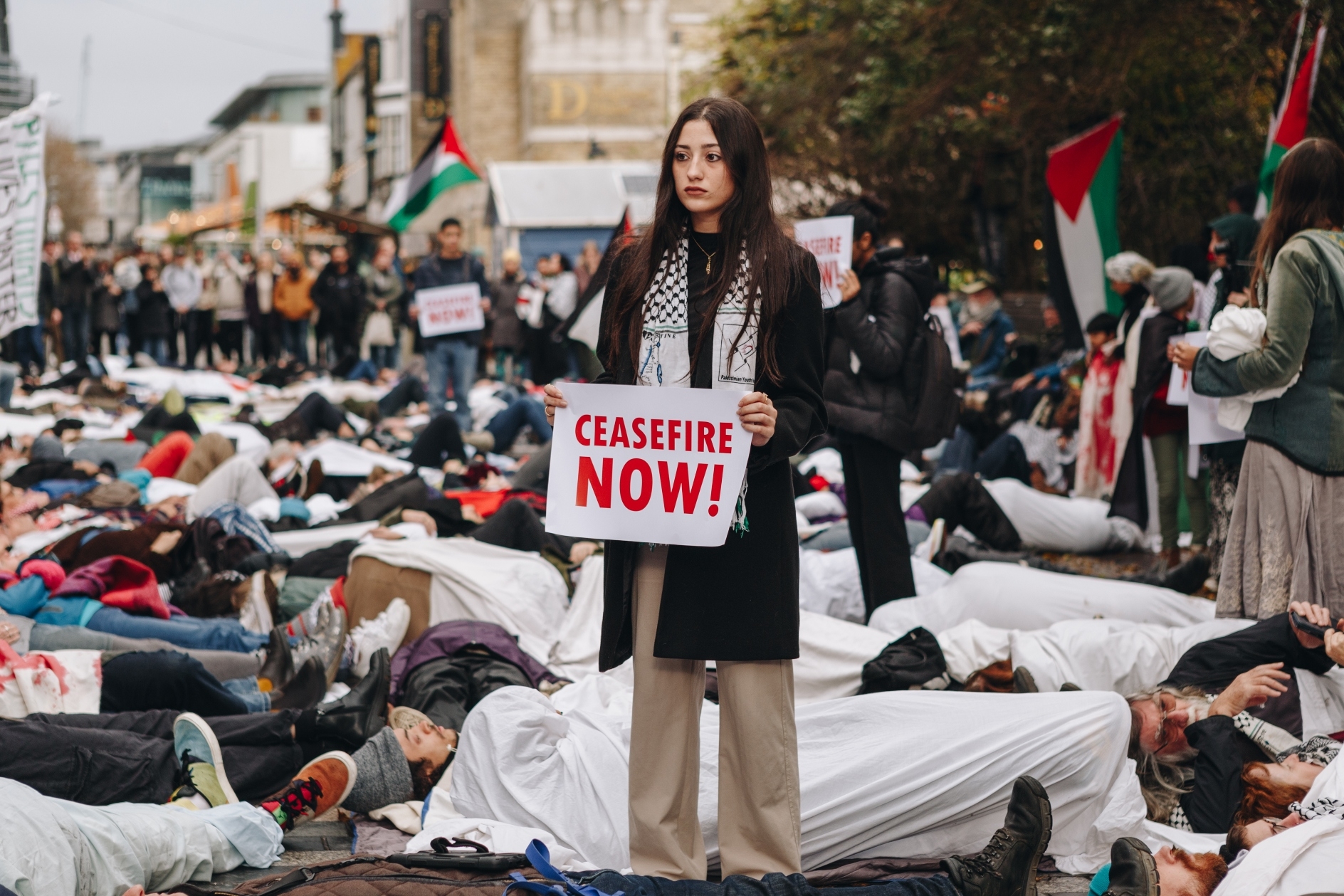
In a retelling of the Slavic folk tale, Baba Yaga, the indomitable hag gives Vasilisa the Brave three tasks to complete successfully or face death. One is to use a sieve to transport water to fill a bathtub.
This is what it feels like as a British Palestinian retelling the narrative of Palestine in the middle of a genocide.
This is what it feels like for anyone linked to the MENA region, or for many activists, old and new, in what we are witnessing to be the worst case of British-backed mass murder since the Iraq war. This time there is no pretence that civilians are not the target.
You flex every muscle as a storyteller, employing philosophical logic, historical fact, humanity, poetry, metaphor, simile, rhetoric, individuality. Each phrase is followed by a nod, the person I am talking to may have an MA, be well-versed in literature and culture, may read the Guardian.
At the end of my toil, I hear a big sigh of relief and the words “it’s really complicated” as I see my listener reach for their Sauvignon Blanc and steer the subject to something lighter. Do I lack all social grace? Have I forgotten how to socialise? Am I mad? No. And the tick is to start all over again immediately, carrying this story through a sieve to a mind that does not want to retain knowledge of the hell hole that is Gaza; the responsibility of the blood on our hands as a nation; the burden that our comfortable way of life has always been built on the suffering of those deemed less valuable. It is easier to hide behind a smokescreen of complexity.
The power of theatre
Everyone has become an orator and we applaud and cheer in the agora that is social media. When offline we organise, we demonstrate, we occupy train stations, street corners, shopping malls, factory gates, and we create philosophical platforms to speak to each other, cheering for the truth, the simple truth phrased again and again through different arguments, sound bites, simple, strong bullet points designed to pierce the malaise that is "complexity".
We applaud rhetoric and oratory. We return to ancient ways as we stand a little raised from the crowd on benches or boxes in the cold with an almost Monty Python-style pathos around a self-elected speaker. We create theatre for each other. Crude blocks of performance, to bathe ourselves in solidarity and fact against the well-oiled machine of global gaslighting.
I am a theatre director and I have never seen the power and importance of theatre in its basic form like this. We gravitate to it in need of its ritual and purpose, and everyone, everyone innately knows how to do it. People move slowly like an established ensemble before lying in the street covered in white bedsheets as poetry is read and the rain starts to fall.
I am in meetings discussing scripts for direct action. We meet people in public libraries, handing out costumes to strangers before performing as lawyers in a shopping mall, reading the words of Irish lawyer Blinne Ní Ghralaigh from the International Court of Justice as a huge Palestinian flag falls down over Zara’s shop face.
In a train station sit-down protest in Brighton, in November, with about 200 people, with flags, placards and a huge black banner saying "Jews against genocide", I had my first go at grabbing the megaphone when it was offered out and found it surprisingly easy to speak as people were so hungry to listen.
'Why do we have to stand in train stations convincing people that Palestinians should be allowed to live?'
- Palestinian woman at protest
I saw a young woman wearing a keffiyeh across from me, crying. It has also become normal to weep with strangers; in these basic gatherings there are held spaces amongst coats and flags to grieve. Eventually someone came over to me and said that the woman was Palestinian and would I speak to her.
Jehad was on her way home from work in Crawley when she came through the ticket barrier to see this solidarity in the train station. It moved and assured her but she was fresh in grief from the loss of her cousin and other family members. She showed me his picture. A white background, professional photograph, sports clothes, barber sharp hairstyle, young, handsome, alive.
“Why do we have to stand in train stations convincing people that Palestinians should be allowed to live?” she said, staring at me through her tears. I felt guilty that the main point of my unprepared speech was to justify Palestinians' right to not be slaughtered by comparing them to myself, to the people in the station, like I should have been justifying something far more complex. No, we are standing on boxes and benches, and re-explaining that children should not be bombed, women should not be bombed, men should not be bombed.
Speaking to the converted, offering it to the deities like a Greek tragedy. We are human and we try to tell the world this in so many ways. She spoke herself and told us all what was happening, how many cousins she had lost and not heard from, she thanked the crowd for their efforts and like everyone in this movement she found the power of oratory even in the midst of her grief on her way home from work.
The affable apologist
Brighton has created a "ceasefire coalition" where many groups can coordinate their actions. We received short notice that Peter Kyle - Labour MP for Hove, treasurer for Labour Friends of Israel, refusing to meet local residents to discuss Palestine - was signing letters at an Amnesty International event.
We took it in turns to wait to speak to him and I ended up with the short straw of catching him just before the event finished. A nice affable man in a hoodie, he made direct eye contact, was charming and very happy to talk, this was disarming. I expected a man who does not want to call for a ceasefire to be hissing and carrying a scythe!
Every time I mentioned the number of children dead, that during our conversation one had died, he replied with "I know"; he said "I know" four times in a row, and then launched into pure waffle, waffle that makes no sense with what he claims to know, waffle that is designed to baffle.
Israel is in a permanent state of existential terror. Created through fear and needing fear to continue to thrive. Its birth story built on myth, its survival built on narrative and bloodshed. Across the world we are fighting the narrative whilst blood is shed.
I grew up in a time when progressives travelled to Israel to build kibbutzim and no one knew what zaatar was. Now a kid with a milkshake on TikTok or a girl with false eyelashes in her car will argue for Palestine’s existence and rights. The kids are speaking with more articulation than I have ever mustered. Everyone has become a philosopher and the arguments are robust and logical.
Some of us older ones will spend our Saturday nights listening to Ilan Pappe and Ghada Karmi but my daughter’s friends are getting their information on TikTok and coming to the same conclusions. Because. It is not complex. It is simple. What is happening is morally wrong. It is hell. It is despair. It is what every moral theory, religion, cautionary tale, law and society warns against. This is the worst of humanity. This is the ‘never again’ moment in history and people are turning away and letting it happen.
When I look at lines of child-sized body bags, when I see the screams because my devices are deliberately turned to mute, when I try to find the humanity in the numbers and long shots of rubble, I see it as profoundly offensive to insinuate nuance and claim complexity or equivalence.
False neutrality
Each day feels like walking through a Willy Wonka factory where something nasty lurks inside every well-presented, tempting wrapper. That nastiness is racism. Those enticing wrappers of liberalism are arts institutions, political parties, movies, good, nice, friendly people who deep down wish the status quo to continue, and if thousands of brown children are slaughtered somewhere else, this is just what happens, this is colonialism.
We are teaching that being allowed to live on the land you grew up on is not complex, it is life. It is our first right of existence
Arts institutions that boast of anti-racism and climate awareness want to remain neutral. Doesn’t neutral sit somewhere in the middle? Where is the middle in a genocide, where is the immune spot, the centre stage of this grotesque horror show where morality is silent? Neutrality has become the acceptable mask of liberal racism.
"We teach life, sir," is a poem by Rafeef Ziadah that has been read at many protests recently. It was written in response to a journalist telling her that things would be better if Palestinians did not teach their children to hate. We teach life, that is what everyone who calls for a ceasefire asks for. We teach life, sir. That is platforming the voices of the children from Gaza. We teach life sir. That is what organisations like Parents 4 Palestine, youth theatre companies like my own and community events with kite-making, cakes and scarf-knitting promote.
We teach life, sir. This is the huge march every Saturday wherever we are, the drums, the chants, the flags, the begging to the clouds for bombs to stop falling. We are teaching that being allowed to live on the land you grew up on is not complex, it is life. It is our first right of existence.
What is complex is admitting to yourself that you see the lives of Palestinians as less equal to you, that the institutions that have benefited you and that you abide by like a religion are part of the system that justifies this haemorrhage of life. That Palestinians are somehow complicit in their fate as we wade through this dark chapter that will never be forgotten.
This is very complex and will take all of your life to articulate. Good luck.
The views expressed in this article belong to the author and do not necessarily reflect the editorial policy of Middle East Eye.
Middle East Eye propose une couverture et une analyse indépendantes et incomparables du Moyen-Orient, de l’Afrique du Nord et d’autres régions du monde. Pour en savoir plus sur la reprise de ce contenu et les frais qui s’appliquent, veuillez remplir ce formulaire [en anglais]. Pour en savoir plus sur MEE, cliquez ici [en anglais].


